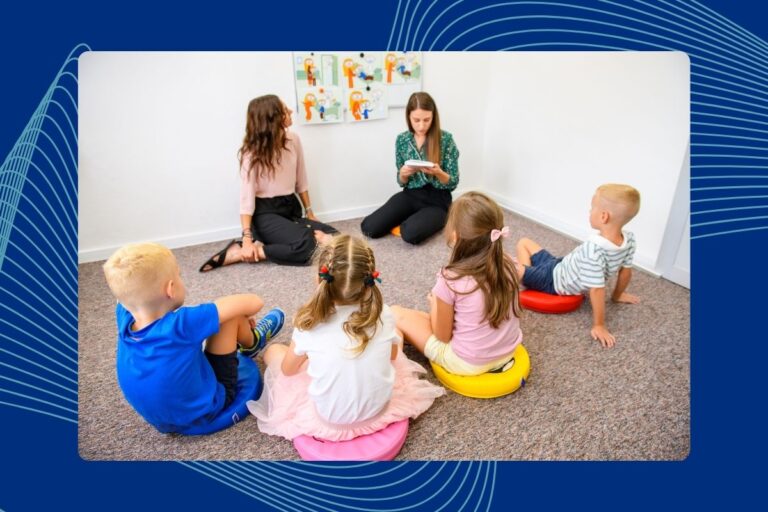In behavioral health, becoming a Registered Behavior Technician (RBT) marks a significant step in one’s career, offering the unique opportunity to make a profound difference in the lives of individuals with behavioral challenges.
What is a Registered Behavior Technician?
A Registered Behavior Technician is a paraprofessional certified by the Behavior Analyst Certification Board (BACB). RBTs work under the direct, continuous supervision of a Board Certified Behavior Analyst (BCBA) or a similarly credentialed professional. They implement behavior-analytic services, including interventions and skill-acquisition plans, designed to improve their clients’ quality of life.
Educational Prerequisites & Job Scope
Candidates typically need a minimum of a high school diploma or equivalent to embark on RBT training. Some jurisdictions may have additional requirements. The role of an RBT is multifaceted, involving direct implementation of treatment plans, data collection, and active participation in the treatment evaluation process, all of which aim to foster significant behavioral improvements in clients.
Top RBT Training Courses
In the digital age, numerous online platforms offer RBT training courses. Here’s a rundown of the top online RBT training courses:
Behavior University
- Overview: This comprehensive 40-hour course, designed to align with the 2nd Edition Registered Behavior Technician™ Task List, offers engaging lectures, interactive activities, and video models to provide a thorough and interesting learning experience. It includes quizzes for each section, a controlled pace to ensure complete training, and various study tools, including a downloadable guide and exam prep resources.
- Duration: 40 hours
- Cost: $69
- Enrollment Link: Behavior University
Autism Therapy Career College
- Overview: This 40-hour RBT® course aligns with the 2nd Edition Task List and the 2024 updates. The new 2.0 training includes interactive activities, an AI RBT study chatbot, test questions, quizzes with feedback, and mock exams, providing an engaging and comprehensive learning experience that students appreciate.
- Duration: 40 hours
- Cost: $99
- Enrollment Link: Autism Therapy Career College
Autism Partner Foundation
- Overview: The Autism Partnership Foundation offers free 40-hour RBT training based on the 2nd edition task list, which meets the BACB’s requirements for RBT certification. This training is continuously available for free to ensure that aspiring RBTs and families have access to quality training.
- Duration: 40 hours
- Cost: FREE
- Enrollment Link: Autism Partner Foundation
Behavior Tech Course
- Overview: This RBT online training program fulfills the 40-hour requirement for the RBT credential based on the RBT Task List 2.0. This course includes online modules that feature videos, presentations, and various other interactive activities. It also includes a final exam for preparation. Optional add-ons include two mock exams, a study guide, and an ethics handbook with case studies.
- Duration: 40 hours
- Cost: $30
- Enrollment Link: Behavior Webinars LLC
Relias Academy
- Overview: This 40-hour RBT training program aligns with the BACB’s requirements, covering the RBT Task List (2nd ed.), RBT Ethics Code (2.0), and supervision aspects. The program includes a free practice exam featuring 75 multiple-choice questions based on the RBT Task List 2nd Edition, available for unlimited attempts to aid in exam preparation.
- Duration: 40 hours
- Cost: $99
- Enrollment Link: Relias Academy
The Value of RBT Training Courses
Embarking on an RBT training course is not just about fulfilling a requirement; it’s about building a foundation for a meaningful career. These courses equip you with the skills and knowledge necessary to make a tangible difference in your client’s lives. Furthermore, the certification opens doors to advanced roles in the field of behavior analysis, enhancing your career trajectory and potential for impact.
FAQs
1. What is a Registered Behavior Technician (RBT)?
An RBT is a professional who provides direct behavioral interventions based on the principles of applied behavior analysis (ABA) to individuals, especially those with developmental disorders like autism. They are certified and work under the supervision of a Board Certified Behavior Analyst (BCBA).
2. What are the responsibilities of an RBT?
RBTs implement behavior-analytic plans, collect and analyze data, and assist in the implementation of behavioral modification strategies. Their work is crucial in ensuring the consistency and effectiveness of behavioral interventions.
3. How do you become an RBT?
To become certified, aspiring RBTs must complete a 40-hour training course, pass a background check, successfully complete an initial competency assessment, and pass the RBT examination.
4. What is the 40-hour RBT training?
This training provides foundational knowledge in behavior analysis, covering critical areas like measurement, assessment, skill acquisition, behavior reduction, and documentation. It prepares candidates for practical application and the certification exam.
5. Can the RBT training be done online?
Yes, there are online platforms approved by the Behavior Analyst Certification Board (BACB) that provide the necessary 40-hour training for RBT certification.
6. What topics are covered in the RBT training?
The training encompasses the RBT Task List, which includes understanding the basics of behavior analysis, techniques for implementing interventions, and methods for data collection and analysis.
7. How is the RBT exam structured?
The RBT exam is a standardized test that assesses the candidate’s understanding of the core principles and practices in behavior analysis as outlined in the RBT Task List and ethical considerations.
8. What are the requirements for maintaining RBT certification?
RBTs must adhere to ethical standards, receive ongoing supervision, and complete continuing education units to maintain their certification and stay updated with the field’s best practices.
9. How does an RBT work with parents and children?
RBTs work closely with children to implement behavior plans and strategies, often involving direct interaction and training sessions with both the children and their parents to facilitate consistency and support across environments.
10. How can one find a reputable RBT training program?
Prospective RBTs should look for training programs that are approved by the BACB, have positive reviews, and adhere to the latest version of the RBT Task List and training requirements.




